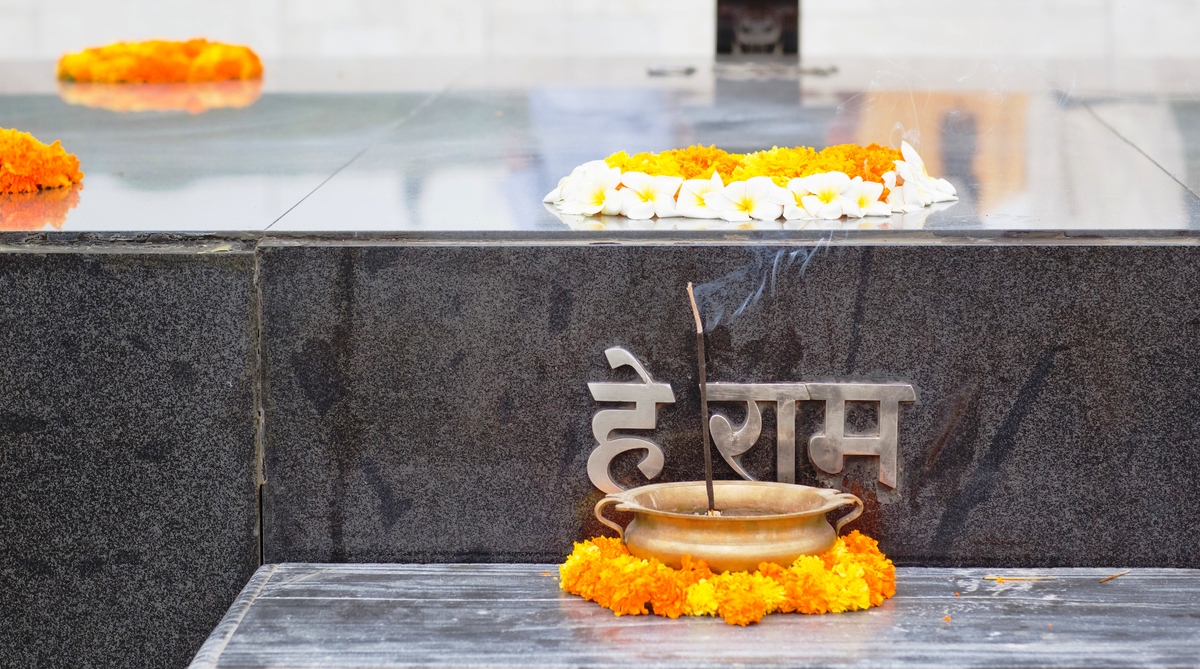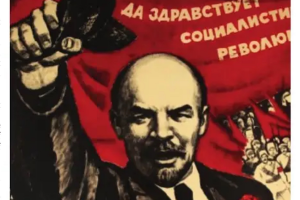Time has discredited heroes as easily as it has forgotten everyone else, but the saints remain. ~ S. Radhakrishnan
If we look at the photographs of Mahatma Gandhi, we see no Apollo-like beauty, no charisma, and no discernible signs of his greatness. Then how do we identify the man? Jawaharlal Nehru had mentioned certain characteristics to identify Gandhi. This little man of poor physique and frail health had a measure of steel in him, something rock-like which did not yield to physical powers, however great they might be. In spite of his unimpressive features, his loincloth and bare body, there was a degree of royalty and kingliness in him, which compelled willing obeisance from others. He was humble but also clear-cut and hard as a diamond, pleasant and soft-spoken but inflexible and terribly earnest. His eyes were mild and deep, yet out of them blazed a fierce energy and determination. His voice was quiet and low, yet was so clear that it could be heard above the shouting of the multitude. His language was always simple and to the point, and seldom was an unnecessary word used. Behind the language of peace and friendship there was power and the quivering shadow of action and a determination not to submit to the wrong. The most remarkable personality of Gandhi was his capacity to win over, or at least to disarm, his opponents.
Rabindranath Tagore had observed: “Taken just as a person, Gandhi was not particularly significant he was no orator, never lifted his voice above the conventional level when talking to a multitude, and there was no attempt at producing an effect. Yet the multitudes hang on every word as upon an oracle.’
How do we remember Gandhi on his death anniversary today (January 30)? As a frail person striding across the globe like a colossus? As an indomitable champion of social justice and human rights? A ‘half-naked’ saint seeking complete identification with the poor and the deprived, silently mediating at the spinning wheel, striving to find the path of salvation for the suffering humanity? Gandhi is remembered for all this and more. He was the only person who followed the philosophy he understood and propagated it thoroughly. He never did or said anything, which he had not practised, and he never expected another person to do anything, which that person did not believe in.
Above all, Gandhi is remembered for his passionate adherence to truth. Truthfulness seemed to be inherent in him. His desire to be truthful at all costs had its origin, mainly, in a boyhood experience. A team of itinerant showmen visited his home-town and had put up the play of King Harishchandra of Ayodhya. The fearlessness and determination of Harishchandra in putting up with all sufferings in the course of following Truth profoundly haunted the twelve-year-old Gandhi, who evidently performed the role of Harishchandra times without number and wept. This had left a deep and lifelong impact on his psyche. As regards Truth, he had once declared: ‘I have no God to serve but Truth. Truth is God. I am devoted to none but Truth.’ Owing to his steadfast adherence to Truth, Gandhi often paid a heavy price ~ deep mental anguish, political persecution, physical hardship and the denial of personal liberty. No wonder, Gandhi’s ceaseless pursuit of Truth led the country to adopt Satyameva Jayate (Truth Will Ever Triumph) as its motto.
He was a stranger to dishonesty. During an inspection of Gandhi’s school at Rajkot, Mr Giles, the school inspector, dictated five words to the students as a spelling test. All students, except Gandhi, had spelt the words correctly. He had mis-spelt the word ‘kettle’ as ‘cattle’. The teacher prompted Gandhi with the point of his boot to copy the correct spelling from his neighbour’s slate… but in vain. Gandhi stuck to his spelling and the mistake remained uncorrected. In his words: ‘It was beyond me to see that he [the teacher] wanted to copy the spelling from the neighbour’s slate, for I had thought that the teacher was there to supervise us against copying’. However, in later life, too, Gandhi said that what is gained through falsehood, dishonesty and crooked means, is but shortlived ~ “There is no shorter way than the straightest way. Euclid taught that the straight line is the shortest distance between two points?”
Gandhi’s personal life was a shining example of ‘simple living and high thinking.’ He used to betray the utmost economy in the use of food, cloth, housing and stationery and did not allow even a pencil to be misplaced or lost without being utilised to the fullest extent. During his struggle, he realised that if he had to serve the poor he must discard all wealth, all possessions that he considered as his, and reduce himself to zero. The less one possessed, the less one wanted, and the better one would be. Better for what? Not for enjoyment of this life but for enjoyment of personal service to one’s fellow beings, service to which one dedicated oneself, body, soul and mind.
Gandhi’s loincloth is now a topic of history. ‘My loincloth is an organic evolution of my life,’ he once explained in Young India. The actual changeover to the loincloth came only in September 1921. During his countrywide tour, he observed that there were millions of people who were forced by their poverty to wear only a langoti.
He was determined to make his own dress absolutely simple. He had his vest, Gandhi cap and full dhoti on. He cast them all away and took to the loincloth as he firmly believed that it would be the only way he could bring himself closer to the poorly clad masses.
In his childhood, Gandhi suffered from fear. In his later life, he had countenanced many occasions to be afraid of. The majority would have lost their nerve, but he faced the situation calmly. In Champaran, when he was inquiring into the hardship of peasants, he was told that “the planter of the area is the worst of the lot. He is bent on murdering you. He has employed bad men to kill you.’ When Gandhi heard this, he went to the planter’s bungalow alone and told him, “I hear you have engaged men to do away with me. That is why I have come alone in secret to your house.’ The planter was dumbfounded with shame. His greatest gift was abhaya or fearlessness. The dominant impulse in India under British rule was that of fear, pervasive oppression, fear of the police, fear of the army, fear of landlord’s agents, fear of laws, fear of unemployment and starvation. Gandhi raised his voice against this overwhelming fear It was against this all-pervading fear that Gandhi’s quiet and determined voice was raised: ‘That nation will be great which sheds fear and uses death as its pillow.’
Gandhi, instead of finding fault with others for various shortcomings, was constantly looking within himself for the reason of failure. He said: ‘We do not wish to see our own faults, but take delight in perceiving the fault of others.’ Whenever he detected a shortcoming in any inmates of the Ashram, instead of rebuking the person, he would inflict upon himself a fast of self-purification. Gandhi succeeded because he worked with everybody with sympathy, not by emphasising their faults, but by enabling them to get over their faults and to be intensely practical. Gandhi was very keen on punctuality; he took all his engagements seriously and kept them to the minute, whatever the cost. He said: ‘Just as I am strict in following my timings meticulously with the Viceroy, in the same manner I should be punctual in keeping the time given to the people.’ When punctuality was concerned, he spared none, not even the great.
Once he had punctually arrived at a political conference at Godhra. Lokamanya Tilak was also due to speak, but arrived late. Welcoming him with due deference and respect, Gandhi told the meeting: ‘Lokamanya is half an hour late. If we are half an hour late in winning swaraj.”
Romain Rolland regarded Mahatma Gandhi’s spirit as ‘ the perfect manifestation of the principle of life which will lead a new humanity on to a new path.’ Albert Einstein recognised the Mahatma as ‘the miracle of a man.’ According to him, ‘Generations to come will scarcely believe that such a one as this ever in flesh and blood walked upon this earth.’
(The writer is a retired IAS officer)











